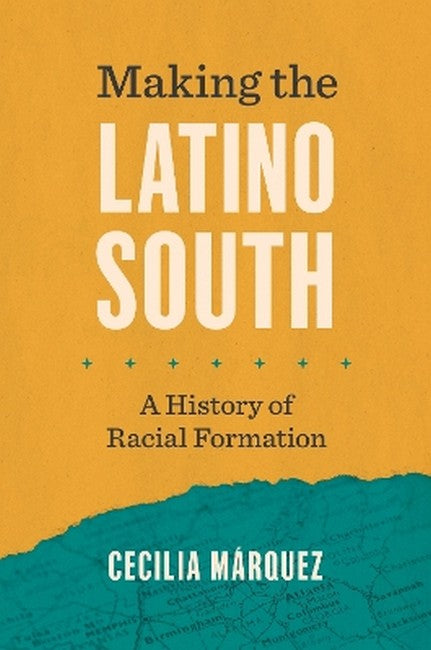Cecelia Marquez is Hunt Family Assistant Professor of History at Duke University
Request Academic Copy
Please copy the ISBN for submitting review copy form
Description
Making the Latino South offers a groundbreaking history of how Latino racial identities evolved in the twentieth century, from Latinos being perceived as 'provisionally white' in the mid-twentieth century to being labeled 'illegal' at the beginning of the twenty-first century."--Southern Historical Quarterly Marquez significantly historicize[s] and spatialize[s] Latinx presence in the US South prior to the late twentieth century. . . . [Making the Latino South] call[s] on readers to reject a monolithic definition of latinidad, specifically by paying attention to histories and politics of ethnicity, race, gender, labor, geography, and generational cohorts."--Southern Spaces Wonderfully engaging. . . . Making the Latino South is thought-provoking and raises questions and potential new research threads for future scholars . . . [and] reminds its reader that the South is not a new destination for Latinas and Latinos. Instead, the South is significantly defined by its Latino presence. . . . [A] must-read for those interested in the US South and its history of race, civil rights, and immigration."--Journal of Working-Class Studies Marquez has recovered a fascinating history of racial formation that deserves a wide readership, both among specialists in Latino history, migration/immigration history, and southern history, but also more generally among historians of the US."--Oral History Review "Making the Latino South provides a nuanced historical analysis of the role of Blackness in the racialization of non-Black Latinos by the latter part of the 20th century. . . [and] is grounded by rich archival research across different Southern states and exceptional oral histories that highlight various perspectives histories from activists, veterans, migrants, and their children, among others."--North Carolina Historical Review This is an important contribution to understanding the history of Latinidad in the US through the lens of southern history.. . . Marquez guides readers through the racial landscape of the South, offering a new history of race in the postwar US that uncovers the anti-Blackness and white supremacy embedded in the creation of Latina/o as a racial category."--CHOICE

